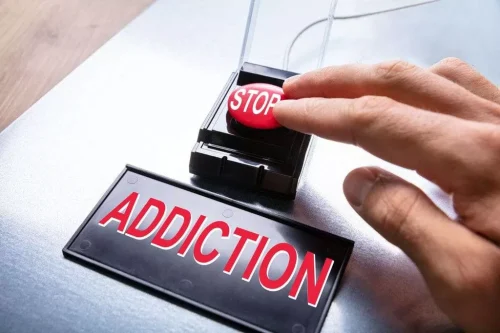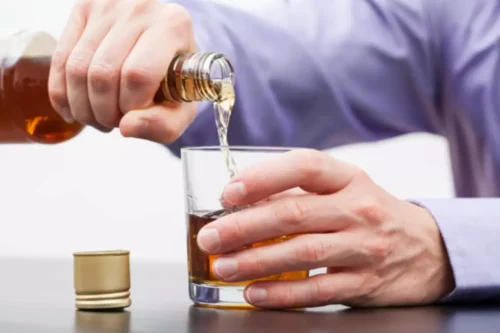
In addition, ongoing research is abundant in the area of neuroplasticity—the amazing ability of the brain to rewire following injury or disease—and its relationship to addiction recovery. Additionally, it’s essential to avoid alcohol and other substances that can alcohol brain fog worsen brain fog symptoms. Brain fog isn’t actually a medical condition, but rather a term used to describe the feeling of being mentally sluggish and fuzzy. After the first few days of recovery, you will start to notice that the brain fog seems to lessen.

How Long Does Brain Fog Last After Drinking?
A huge risk factor for people who develop alcohol use disorder is early-onset drinking. So, if you drink before the age of 14, there’s about a 50% chance you’re going to develop an alcohol use disorder in your adulthood,” explains Dr. Anand. Caffeine directly impacts dopamine levels and other neurotransmitters contributing to your overall brain functioning, sleep, appetite, and mood. Experts say the first approach to getting rid of brain fog includes looking at lifestyle factors such as nutrition, sleep, and exercise. Alterations to brain structure and function during chronic alcohol use can make it tough for people to stop drinking, despite their best intentions.
- This is because alcohol has a dehydrating effect on the brain, which can cause cells to shrink.
- Excessive alcohol consumption can have long-lasting effects on neurotransmitters in the brain, decreasing their effectiveness or even mimicking them.
- That means no computers or TV’s since they emit blue light, a known suppressor of melatonin production.
- However, the stress, anxiety, isolation, and threat of the coronavirus pandemic can also indirectly cause brain fog, since it can be exhausting for your brain, says Romanoff.
- COVID-19 can cause inflammation in the brain, which can affect the ability of neurons in the brain to communicate with each other, resulting in brain fog.
- It’s important to note that it’s best to start a healthy withdrawal program under the supervision of a medical professional.
Long-term effects
Alcohol-related brain fog can generally last several days to weeks after quitting drinking. You must prioritize self-care and engage in healthy habits to support cognitive function during this time. When it comes to alcohol’s effects on the brain, the consequences are profound. It slows down brain activity, leading to issues like memory loss, poor muscle coordination, and delayed reaction times.

Psychological effects
- The duration of brain fog after quitting alcohol varies from person to person.
- We might find ourselves in that brain fog state, forgetting things more often or having difficulty concentrating.
- That misty cloud obstructing your mental clarity is known as alcohol-induced brain fog, a common yet overlooked symptom of alcohol withdrawal.
- Dr. Anand stresses the importance of drinking in moderation, if at all.
- In fact, a 2021 study found that 7 percent of people with long-haul COVID-19 reported brain fog.
- In particular, learning a new language or how to play an instrument is the equivalent of rigorous cardiovascular exercise for your brain.
I wouldn’t eat well which would reduce my blood sugar which would in turn make the hangovers worse. But amongst all this as the title asks, how long does the brain fog from alcohol last? I have been a really smart kid (that’s what I have been told by people of academia) who got accepted to a PhD program.

Signs and Symptoms
Alcohol is a risk factor for traumatic brain injuries (TBI) due to falls, car accidents, fights, and other blows to the head. According to a 2010 analysis, 35–81% of people who seek treatment for a TBI are intoxicated. Severe alcohol overdoses may cause permanent brain damage even if the person survives. His goal is to help people take control of their addiction, reset their cravings, unscramble their broken brain circuitry and use actionable strategies that work ten times better than anything else. I know some of the tips we provide seem very basic, but sometimes, the foundational basics are essential when it comes to alcohol recovery. You’re likely already aware, but it’s important to emphasize how consuming alcohol significantly hinders our brain’s capacity to execute fundamental cognitive tasks.
- Those with a wider circle of support have a better chance of staying sober.
- Here are 5 simple and practical ways to get your brain back on track during recovery.
- These challenges can cause further feelings of frustration and isolation.
- This article will explore the connection between alcohol and brain fog from drinking.
- People should talk to a healthcare professional about their drinking history and personal risk factors to get tailored advice on safe alcohol consumption.
- Those first early days of recovery can sometimes feel like you aren’t making much progress.
发表回复